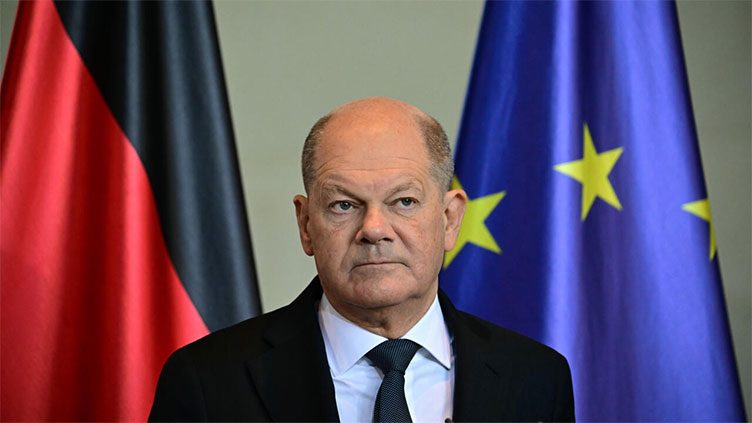Scholz Vows Continued German Support in Final Call with Zelensky










2025-05-06T02:47:25Z

In a significant farewell gesture, Chancellor Olaf Scholz reaffirmed Germany's steadfast support for Ukraine during his final phone call with President Volodymyr Zelensky on Monday. This call took place just one day before Scholz was set to step down from his position, making way for Friedrich Merz, the leader of the Christian Democratic Union (CDU), as he prepares to assume office.
Chancellor Scholz has been a prominent advocate for Ukraine since the onset of Russia's full-scale invasion in February 2022. His commitment has been underscored by his administration's rapid response to Ukraine's military needs, which has seen Germany emerge as the second-largest military supporter of Ukraine, following the United States. This marked a significant shift for Germany, as the country has historically adhered to a pacifist stance since World War II. Nonetheless, under Scholz’s leadership, Germany began supplying substantial quantities of military equipment, including artillery, anti-aircraft systems, and armored vehicles, which have been crucial in bolstering Ukraine's defense capabilities.
During the call, Scholz emphasized Germany's unwavering solidarity with Ukraine, as reflected in a statement from his spokesman, Steffen Hebestreit. “He reaffirmed Germany's continued and unwavering solidarity with Ukraine,” Hebestreit stated. “He emphasized that Germany, in close coordination with European and international partners, will continue to support Ukraine as needed and for as long as necessary.” This level of commitment is particularly vital in light of the ongoing conflict, where military supplies and political cooperation are essential for Ukraine's resilience.
While Scholz's administration has been lauded for these efforts, it has not been without its challenges and criticisms. He faced backlash for his perceived indecisiveness regarding pivotal military decisions, notably the delayed approval for sending Leopard 2 battle tanks to Ukraine. Critics have also pointed to his refusal to provide long-range Taurus missiles, which would enable Ukrainian forces to target strategic locations deep within Russian territory. These hesitations have raised concerns among some factions within German politics and the international community about the urgency of support for Ukraine.
Friedrich Merz, who is set to take over the chancellorship, has promised to continue the support for Ukraine that Scholz initiated. His coalition, comprising the CDU/CSU and Scholz’s center-left Social Democratic Party (SPD), is under pressure to maintain a strong stance against Russian aggression. Like many European leaders, Merz is acutely aware of the geopolitical complexities at play, particularly as U.S. President Donald Trump has expressed interest in brokering what some view as a potentially hasty peace deal between Zelensky and Russian President Vladimir Putin. Such a move could risk establishing terms favoring Russia, raising alarms among allies.
In his conversation with Zelensky, Scholz did not shy away from direct criticism of President Putin. He condemned what he termed the “cynical delaying tactics” employed by the Kremlin, which he believes are obstructing significant progress towards ending the war. Scholz pointed out that Zelensky had already indicated a willingness to consider a 30-day, unconditional ceasefire, showcasing Ukraine's commitment to peace. “This must finally be reciprocated by the Russian president,” Scholz asserted, conveying a sense of urgency for a diplomatic resolution.
 Robert Jackson
Robert Jackson
Source of the news: Dunya News